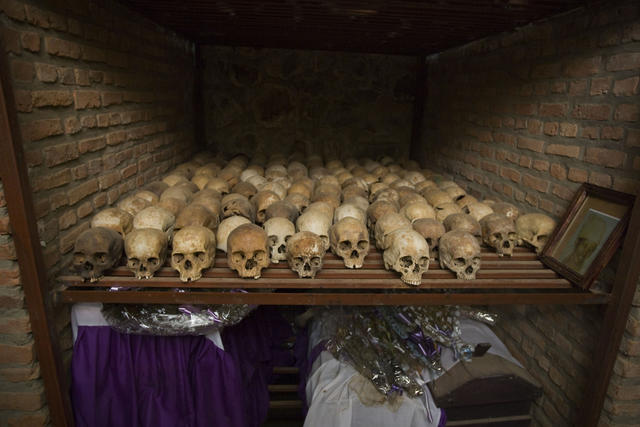
Arrest of Rwandan genocide suspects: an important step towards accountability.
The Metropolitan Police’s arrest of five Rwandan genocide suspects in the UK on 30 May is an important step forward in the pursuit of justice for survivors of the 1994 genocide. It is now up to the UK courts to determine whether an extradition to Rwanda is in compliance with the UK’s obligations under international law, in particular, whether the suspects will receive a fair trial in Rwanda.
The men arrested – Emmanuel Nteziryayo, Charles Munyaneza, Celestin Ugirashebuja, Vincent Bajinya and Celestin Mutabaruka – are accused by Rwandan prosecutors of genocide and crimes against humanity committed in Rwanda in 1994. The arrest follows a fresh extradition request by the Rwandan authorities, after a prior extradition request for four of the suspects was rejected by the UK High Court in 2009, on the basis that they would not have received a fair trial in Rwanda. The men were then unconditionally released although the Court had also ruled that the suspects had a “case to answer”. The fifth suspect – Celestin Mutabaruka – was arrested on the basis of the latest extradition request.
Reforms have been introduced in UK law, subsequent to the High Court’s ruling, facilitating the exercise of jurisdiction by UK courts over genocide, war crimes and crimes against humanity committed abroad since 1991. Regrettably, however, there have been no apparent steps taken by the UK authorities to investigate and prosecute the suspects despite the UK’s obligation to do so under international law.
“It is imperative to ensure accountability for the most egregious crimes under international law and REDRESS reiterates the importance of justice and reparation for survivors of these crimes,” said Tara O’Leary, Universal Jurisdiction Coordinator at REDRESS. “Nowhere, including the UK, ought to be a safe haven for those accused of genocide and related international crimes,” she added.
The International Criminal Tribunal for Rwanda (ICTR) and the European Court of Human Rights have approved, respectively, the transfer and extradition of genocide suspects for trial in Rwanda in recent years, triggering other successful extradition requests, for example, in Norway. However, REDRESS emphasises that each extradition request must be examined by a court on its own merit. Should there be a judicial finding that the suspects cannot be extradited to Rwanda in the light of the 2009 ruling, REDRESS urges UK authorities to initiate a prompt investigation with a view to prosecuting the five suspects in the UK.
For further information, please contact Eva Sanchis, REDRESS’ Communications Officer, at eva(at)redress.org or Albert Gasake, SURF/Rwanda’s Legal Advocacy Coordinator, at albert(at)survivors-fund.org.uk.
About REDRESS: REDRESS was founded in 1992. Since then, it has consistently fought for the rights of torture survivors and their families in the UK and abroad. It has intervened in a range of leading torture cases. More information on our work is available on www.redress.org.
About SURF: Survivors Fund (SURF) is the principal international organisation representing and supporting survivors of the genocide. Since 1997 it has delivered support for survivors including housing and healthcare, education and employment, and is now focusing on restorative justice. More information: https://survivors-fund.org.uk.
